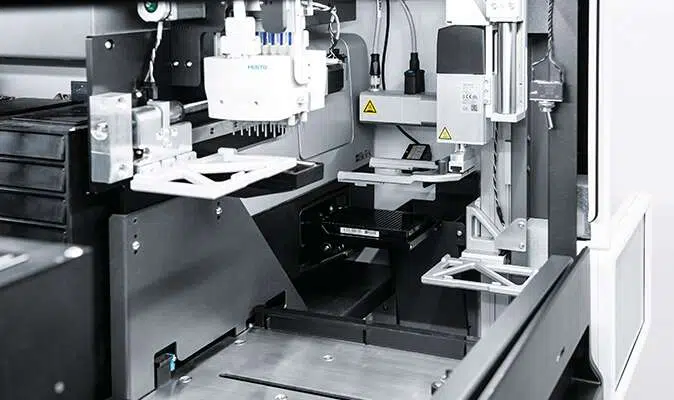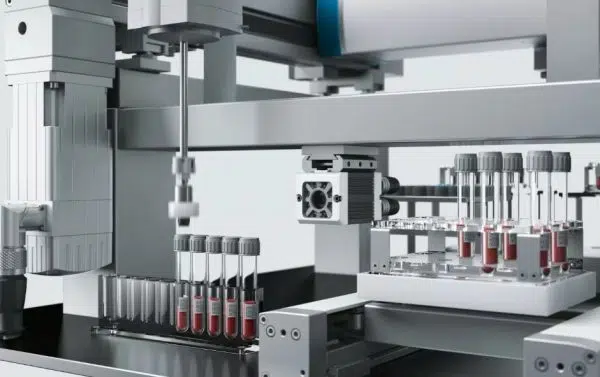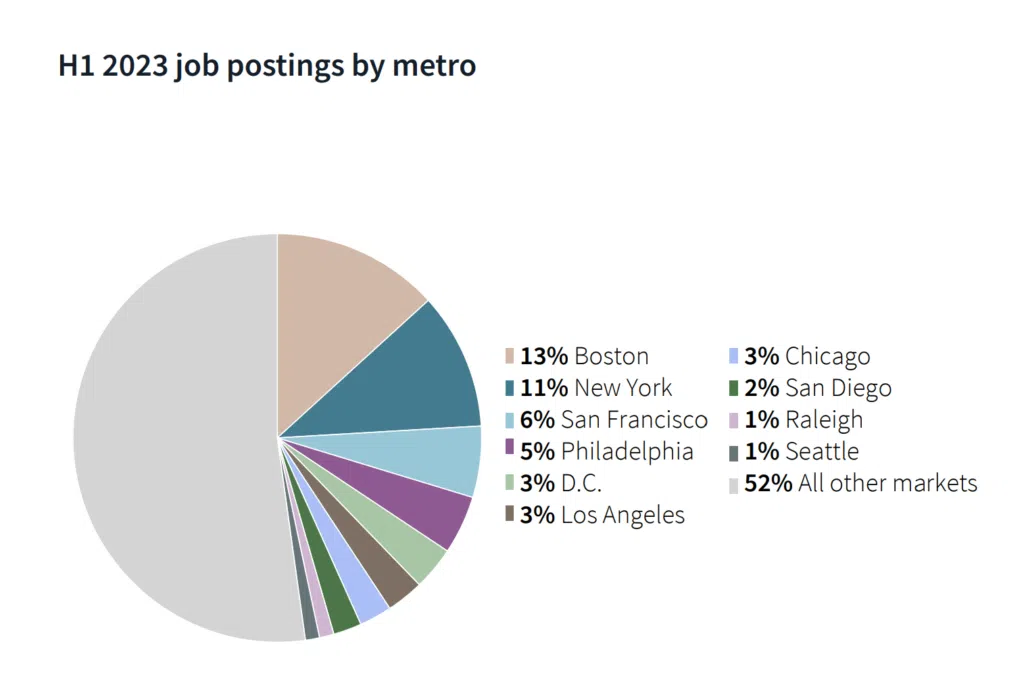The life sciences industry in Massachusetts and the surrounding regions is exploding, which means more jobs and skills training opportunities. For reference, the metro Boston region has the largest biotech cluster in the nation. Of all biotech jobs in the country in the first half of 2023, 13% were in Boston—more than any other market.
Life sciences employment in Massachusetts grew 6.9% year-over-year in 2023. Biopharma R&D grew 8.5%, and biomanufacturing grew 6.3%. Many of these jobs are for scientists developing new drugs and engineers designing the latest testing hardware. However, supporting roles are also in-demand, including automation specialists, R&D technicians, and field service engineers. People in these jobs need to understand industry 4.0 and automation concepts for various testing, sequencing, and manufacturing applications, including:
- Liquid handling storage, retrieval and dispensing, process and batch control
- Process automation valves
- Sensors and controls for pharmaceutical manufacturing
- Robots and XYZ gantry actuators for highly-repetitive sequencing
In Boston, start-up SeluxDX develops precision diagnostics for infectious diseases. They dramatically reduced the time it takes physicians to prescribe the most effective antibiotics for patients with an infection, reducing hospital stays and de-escalating the cycle of antibiotic overuse and resistance. This groundbreaking system uses equipment from Festo, a leading industrial automation company, which improves throughput and guarantees reliability and accuracy in its process.

What can you do to contribute to this industry growth as a local educator?
Prepare students to enter the life sciences industry with highly customizable, industry 4.0-ready training systems that emulate laboratory automation processes from Festo Didactic, Festo's education division. Solutions include:
- Festo LX: a customizable online learning platform for teaching industry 4.0 skills
- Festo Industry 4.0 Certification Program: a comprehensive certification program certified by NC3
As an educational institution, you can take advantage of support from the Massachusetts Life Sciences Center. Their Workforce Development, STEM Equipment, and Pathmaker grants will award institutions funding to purchase and install STEM and life sciences equipment and technology that will enable them to effectively prepare students for high-demand career opportunities in the life sciences (applications are due by the end of March 2024).
There is tremendous growth and support for the life sciences industry in Massachusetts, which translates to more opportunities for your students and the local economy.
If you would like help training your students in laboratory automation skills, AET Labs can help! We can help you develop a narrative for a grant application and provide equipment and technology recommendations for your lab.


